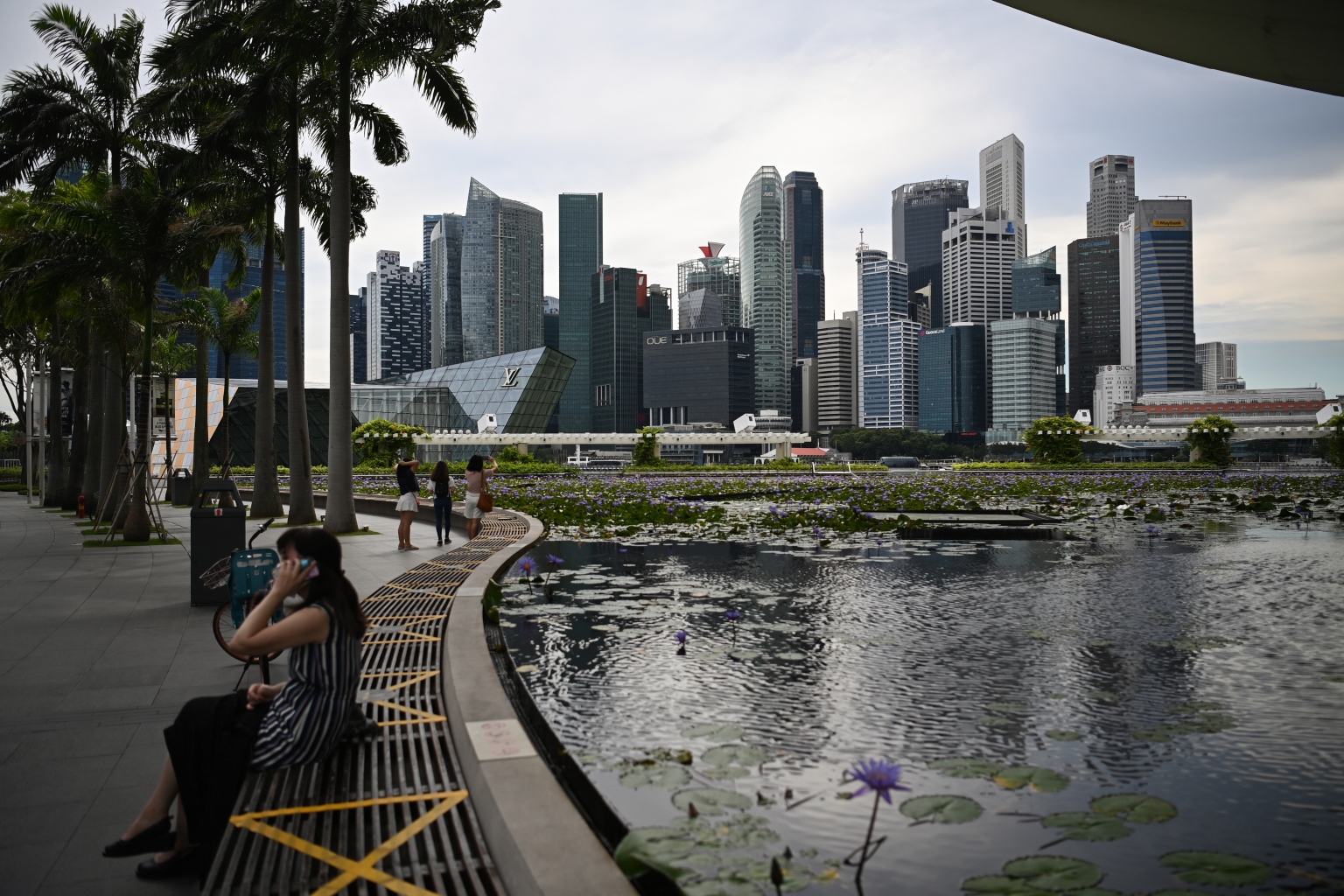Just 16% of Asia-Pacific's top 50 listed firms link ESG performance to top exec pay: Study
Sign up now: Get ST's newsletters delivered to your inbox

Out of 650 companies analysed, 84 per cent reported identifying climate change as a sustainability issue.
PHOTO: ST FILE
Wong Pei Ting
Follow topic:
SINGAPORE (THE BUSINESS TIMES) - A study of the sustainability reports of the top 50 listed companies by market capitalisation issued in 2020 and 2021 across 13 Asia-Pacific economies has found that not even a fifth of the firms link environmental, social and governance (ESG) performance to how they pay their top executives.
The report, out on Monday (May 9), by professional services firm PwC Singapore and the Centre for Governance and Sustainability (CGS) at the National University of Singapore found that only 16 per cent of the 650 companies being studied did so.
A closer look would reveal that propping up the figure was Australia, which has a disproportionately high number of companies linking ESG performance to top executive remuneration - more than 50 per cent of the top 50 companies there did so.
The next best economies were Taiwan and Thailand, which had about 30 per cent and 25 per cent of the companies doing so respectively, followed by Singapore and Japan, where some 20 per cent of the companies did so.
Among the laggards in the region were Vietnam, the Philippines, Indonesia, India and Malaysia, where less than 10 per cent of the companies took such measures.
On why this matters, the report stated that disclosing board of directors' responsibilities over sustainability issues and installing an appropriate ESG structure can help establish oversight and responsibility. This provides confidence that the necessary framework and resources are in place for the strategy to be delivered, it said.
The linkage of ESG performance to executive remuneration, in particular, aligns sustainability performance and behaviours with sustainability targets, it added.
Another part of the study found that only 24 per cent of companies disclosed ESG-related training for their board of directors. This sheds some light on the board's ability to discharge their governance and oversight duties, the report noted.
Together, these findings show that there is still "room for moving the needle" on governance and accountability at the leadership level in the region, PwC Singapore and CGS said in a statement.
Some results are encouraging, however. Over 80 per cent of the companies disclosed their sustainability targets, 75 per cent disclosed their ESG structure and 67 per cent disclosed their board of directors' responsibilities for sustainability.
CGS director Lawrence Loh said the study showed the companies' next stop would be to intensify sustainability training for leaders and employees, and turn pledges into action.
The study found that while the majority of the companies acknowledged the seriousness of climate issues, many have yet to reveal how they embed climate measures in their business operations and strategy.
Out of 650 companies analysed, 84 per cent reported identifying climate change as a sustainability issue, but less than half - 41 per cent - reported their climate-related risks or opportunities targets, or disclosed their performance against these targets.
Furthermore, only 36 per cent reported how they are integrating climate-related risks in their overall risk management.
"Sustainability education and training are a journey," Mr Loh added. "When companies can show that to customers and investors, more will join them on their green journey."
Ms Fang Eu-Lin, sustainability and climate change leader at PwC Singapore, meanwhile noted that many companies are still in the early years of their ESG journey. "There remains some way to go in keeping pace with maturing stakeholder expectations calling for not just climate action, but climate at the core of the business strategy," she said.

